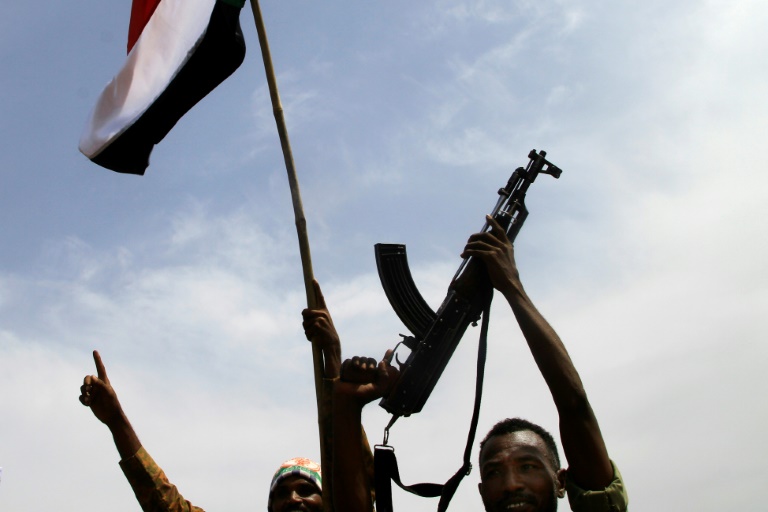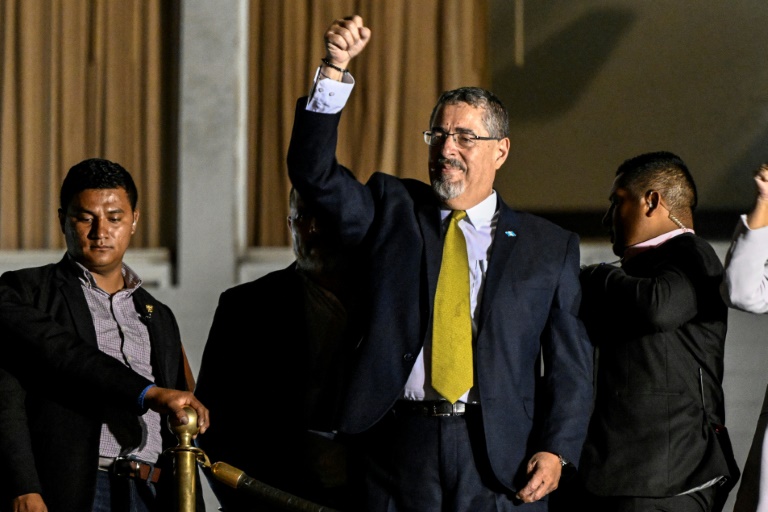Fighting in Sudan showed no signs of abating Friday as the United Nations issued a dire warning over the impact of a war it said threatens to “consume” the country.
Paramilitaries launched a renewed attack on a key armoured corps base in the capital’s south, witnesses said, which the army and the Rapid Support Forces have been battling to control since Sunday.
The war between army chief Abdel Fattah al-Burhan and his former deputy Mohamed Hamdan Daglo, who commands the paramilitary RSF, has raged since April 15.
It has spread from Khartoum and the western region of Darfur to Kordofan and Jazira state, killing thousands and forcing millions to flee their homes.
“The war in Sudan is fuelling a humanitarian emergency of epic proportions,” Martin Griffiths, under-secretary-general for humanitarian affairs and emergency relief coordinator at the United Nations, said Friday.
“This viral conflict — and the hunger, disease and displacement left in its wake — now threatens to consume the entire country,” Griffiths added in a statement.
Conservative estimates from the Armed Conflict Location & Event Data project say nearly 5,000 people have been killed.
But the battles have prevented the recovery of the bodies of many others thought to have died.
UN figures indicate that more than 4.6 million people have been forced to flee their homes due to the fighting.
For the second consecutive day, Burhan was seen Friday outside his Khartoum headquarters which for weeks had been besieged by the paramilitaries, according to army videos.
The images showed jubilant soldiers greeting him as he stepped out of a helicopter at the Atbara base in Nile State, some 300 kilometres (185 miles) northeast of Khartoum.
Local journalists meanwhile flocked to the coastal city of Port Sudan on the Red Sea, where the UN and many government officials have relocated, anticipating a rumoured visit by Burhan, according to an AFP correspondent.
While Khartoum airport has been out of service since the conflict began, Port Sudan’s airport has remained operational for evacuation and relief flights, fuelling speculation of an overseas trip for the army chief.
Footage of Burhan, who was wearing his army fatigues and his trademark beret when he landed in Atbara, have rarely been released since the fighting erupted in April.
But on Thursday the army posted images showing the general speaking to soldiers with a caption indicating he was at the Wadi Seidna air base north of Khartoum.
Another video showed him surrounded by civilians in the capital’s twin-city of Omdurman, even as residents there reported fighting on Thursday.
The raging war between the rival generals has devastated Sudan, already an impoverished nation, and numerous attempts to mediate a ceasefire, namely by the United States and Saudi Arabia, have failed.
Humanitarian aid groups have long been active in Sudan, where for years millions of Sudanese have relied on food and other assistance.
As the war has dragged on with no let-up in sight, more than half the country is in need of humanitarian aid, according to the UN.
Experts have warned that more than six million people in Sudan were on the brink of famine, with Griffith reiterating Friday that the country was more fragile than ever.
“The longer the fighting continues, the more devastating its impact. Some places have already run out of food,” Griffiths said.
“Hundreds of thousands of children are severely malnourished and at imminent risk of death if left untreated.”
The UN official said that in Kadugli, in South Kordofan state, “food stocks have been fully depleted, as clashes and road blockages prevent aid workers from reaching the hungry.”
Griffiths’ spokesman Jens Laerke told reporters in Geneva on Friday that the UN faces two major problems concerning Sudan: a lack of funds and difficult access to the beleaguered population due to security issues.
Bureaucratic obstacles also stand in the way of attempts to channel aid to Sudan, which has reduced the number of entry visas to UN and other aid workers, he said.
As a result, containers of aid are stuck in Port Sudan, which has been spared the fighting but is difficult to reach from Khartoum and Darfur.






